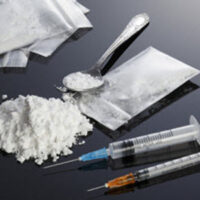The Synthetic Drug Abuse Prevention Act: When “Research Chemicals” Officially Become Illegal Drugs

Want to get high without doing drugs? You have plenty of options, as every kid tasting freedom for the first time knows. From eating vast amounts of candy or riding amusement park rides all day long to gazing at a lava lamp in a black-lit room or lighting incense and watching the smoke waft through the air as the smell fills the room, there are plenty of ways to induce an exhilarating or mellow feeling other than ingesting the controlled substances listed by the U.S. government. In recent years, though, “legal highs” have become more sophisticated. A wide variety of synthetic drugs, chemically similar to officially recognized controlled substances, have gained popularity. Since these synthetic drugs are at least as dangerous as the old generation of street drugs, the law has moved to outlaw them. If you are facing criminal charges in relation to possession of synthetic drugs, contact an Orlando drug crimes lawyer.
What Are Synthetic Drugs?
Synthetic drugs are substances that are chemically similar enough to recognized illegal drugs to produce a similar effect but chemically different enough from them not to test positive as those drugs on forensic tests. Connoisseurs of these drugs tend to call them “research chemicals,” as this is one of the terms under which they are sold. Many of the synthetic drugs confiscated in the United States originated in China and were bought online and shipped by mail. Because these drugs are unregulated, their potency can vary from one dose to another, and many of them are much stronger than recognized “hard drugs” such as cocaine, heroin, and LSD even in very small amounts. Therefore, the potential for accidental overdose is very high. Trafficking synthetic drugs is a serious crime.
The Synthetic Drug Abuse Prevention Act of 2012
The Synthetic Drug Abuse Prevention Act of 2012 is the federal government’s most recent step to ban synthetic drugs. It classifies 26 synthetic drugs as Schedule I drugs; these compounds were not previously listed as controlled substances. The chemicals covered in the Synthetic Drug Abuse Prevention Act of 2012 fall into the categories of synthetic cannabinoids, which mimic the effects of THC, the active ingredient in marijuana, and synthetic cathinones, which mimic the effects of amphetamines. Synthetic cannabinoids were previously sold legally in the United States and labeled as incense or potpourri, whereas synthetic cathinones were sold as bath salts. The products were labeled “not for human consumption,” but because of their abuse potential, they have been reclassified as Schedule I drugs, meaning that they have no legally recognized medical uses. By contrast, cocaine is a Schedule II controlled substance, meaning that, while its abuse potential is very high, it has limited use in medicine; cocaine can be used as an anesthetic in eye surgery.
Let Us Help You Today
If you are charged in connection with synthetic drugs, your rights as a defendant in a criminal case apply. Contact the Florida drug defense attorneys at the FL Drug Defense Group to discuss your case.
Resource:
obamawhitehouse.archives.gov/ondcp/ondcp-fact-sheets/synthetic-drugs-k2-spice-bath-salts
